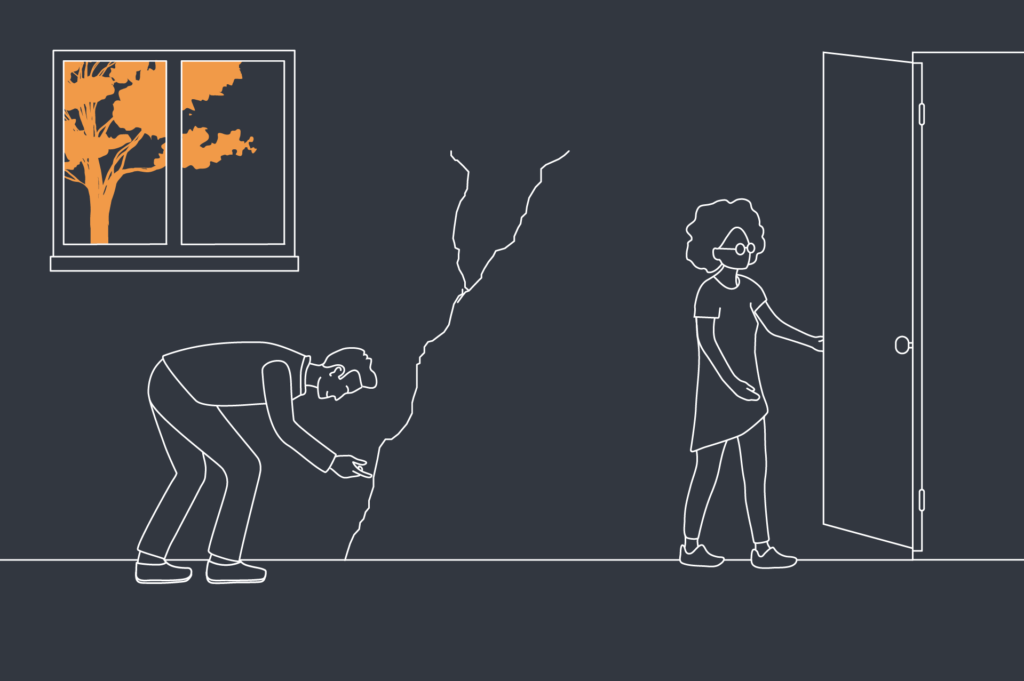Being a landlord can be rewarding, but it’s also a role that comes with responsibilities and risks. Along with managing tenants and keeping properties up to standard, landlords face the unexpected – from sudden rent arrears to legal battles over possession. But there’s good news: with the right protection, you can shield yourself from worst-case scenarios. In this blog, we’ll share why Rent and Legal Protection is an absolute must for landlords. Take it from us – we’ve seen first-hand how valuable this safeguard can be.

What is Rent and Legal Protection?
Rent and Legal Protection provides landlords with peace of mind by covering two key areas: unpaid rent and legal costs related to possession. If tenants fail to make payments while still occupying the property, this protection steps in to cover your income gap. Plus, if you ever need to take legal steps to regain possession, it helps with the often high legal expenses. In short, Rent and Legal Protection safeguards your rental income and helps manage costly legal processes.
Why Having No Protection Could Cost You (A Real Story)
Back in June 2020, we rented a flat in Crouch End to tenants who seemed perfect on paper. They passed every reference check, and we felt confident about moving forward. For the next two years, these tenants lived up to expectations – they maintained the property well and paid rent on time.
Unfortunately, life took a downturn for them. Job losses, health struggles, and other issues made it impossible for them to keep up with rent. The landlord was incredibly understanding, but eventually, the situation became unsustainable, and there was no choice but to pursue legal action to regain possession.
The process began in November 2023, but with court delays, the final hearing didn’t occur until February 2024. A possession order was granted, but actual possession wasn’t obtained until October 2024. In total, the landlord faced a rent loss of 13 months and legal fees exceeding £3,000. While the buildings insurance covered rent loss due to events like fire, it didn’t cover unpaid rent. This is where Rent and Legal Protection would have made all the difference.

Understanding the Legal Process and Timelines
Recent government figures show that more landlords are going to court to take back their properties. Compared to 2023, landlord claims have gone up from 23,374 to 24,010 (a 3% increase). Court orders are up 2%, eviction warrants have jumped 7%, and actual repossessions have risen by 5%.
One big problem for landlords is how long it takes to get their properties back. On average, it now takes 25 weeks from filing a claim to actually regaining possession-up from 23.6 weeks in 2023. And that doesn’t even include the months of unpaid rent before starting legal action or other delays along the way. All in all, many landlords could be looking at about nine months of lost rental income, if not more.
Guaranteed Rent – Even When Tenants Don’t Pay
One of the biggest worries for landlords is rent arrears-when tenants stop paying, but you’re still on the hook for mortgage payments and other expenses. With the right protection in place, you’ll continue to receive your monthly rent until you regain possession of the property, meaning no sudden financial gaps. Even after the tenant has left, there’s usually a period before new tenants move in. Rent protection helps cover this transition period, giving you peace of mind while you find a new occupant.
Legal Costs Covered – From Evictions to Unpaid Rent
Legal battles can be a nightmare-expensive, time-consuming, and stressful. If you ever need to take legal action to evict a tenant or recover unpaid rent, landlord protection ensures you’re not left footing the bill for solicitors and court proceedings. Whether it’s a tenant refusing to leave, causing damage to your property, or simply not paying what they owe, having legal cover means you can take action without worrying about the cost. Even if you have to attend court, your legal expenses will be covered, so you’re not out of pocket.

Extra Protection – Storage, Squatters & Disputes
Sometimes, tenants leave behind belongings that need to be stored, or you might have to cover alternative accommodation costs for them in certain situations. A good landlord protection plan takes care of these unexpected expenses. If squatters move into your property, eviction proceedings can be complex-but with legal cover, you won’t have to deal with it alone. And let’s not forget contract disputes-whether you’re hiring tradespeople, purchasing appliances, or dealing with maintenance services, protection ensures you have legal backing if things go south.
Tax Investigations – Don’t Face HMRC Alone
HMRC investigations can be daunting, especially if you’re not familiar with tax laws surrounding rental income. If you ever find yourself under scrutiny, landlord protection can help cover legal representation, so you have professional support throughout the process. This ensures you’re not left navigating complex tax issues on your own.
Protecting Your Investment: Why You Shouldn’t Wait
We’ve learned from experience that even the most reliable tenancies can take an unexpected turn. Financial setbacks, health issues, and life changes happen, and landlords can face severe financial implications if they’re not protected. Legal proceedings are lengthy, and with proposed changes in legislation, they’re likely to get even slower, leaving landlords more exposed than ever.
Avoid Unfortunate Scenarios with the Right Cover
At Davies & Davies, we’ve helped many landlords secure Rent and Legal Protection, so they’re prepared for all scenarios. With this cover, you can navigate tough times without facing steep financial losses.
If you’re interested in learning how to safeguard your investment, give us a call. Our team is here to help connect you with the best options for your situation.
Contact us:
mark@daviesdavies.co.uk – Sales Director (contact for sales, lettings and new homes)
katrina@daviesdavies.co.uk – Head of Property & Block Management (contact for property and block management)
Davies & Davies Estate Agents, 85 Stroud Green Road, London, N4 3EG
Article & images by Barefaced Studios
You might also want to read other useful blog articles by clicking here.
Please note that all content contained within our website is for informational purposes only. You should not construe any such information or other material as legal, tax, investment, financial, or other advice. All Content on this site is information of a general nature and does not address the circumstances of any particular individual or entity. We advise seeking professional advice from a legal, financial, or other professional.

The Renters’ Rights Bill is expected to become law after Easter 2025, bringing major changes to the private rented sector. Section 21 evictions will be abolished, and a single system of periodic tenancies will be introduced. This is the most significant shake-up for landlords and tenants since the Housing Act 1988.
While there will be challenges, there are also opportunities to adapt and thrive. In this blog, we break down everything you need to know, with any recent updates to be added.

Buying your first home is an exciting milestone, but amidst the excitement, it’s essential to keep a sharp eye out for potential issues. A well-staged property might look picture-perfect, but it’s what’s lurking beneath the surface that really matters. From the condition of the boiler to the strength of the water pressure, here’s Davies and Davies’ essential guide to making sure your dream home doesn’t come with any unexpected nightmares.
Read More...
Owning a home is like having a never-ending to-do list-there’s always something that needs fixing, painting, or decluttering. But when the sun is shining, and the days stretch longer, tackling those home maintenance tasks can actually feel (dare we say it?) enjoyable. So, slap on some sunscreen, grab a cold drink, and let’s dive into the ultimate summer home maintenance checklist to keep your property in top shape.
Read More...Get in Touch
Opening Times
Mon – Thurs: 0900 – 1815
Fri: 0900 – 1800
Sat: 1000 – 1600
Sun: Appointments by request